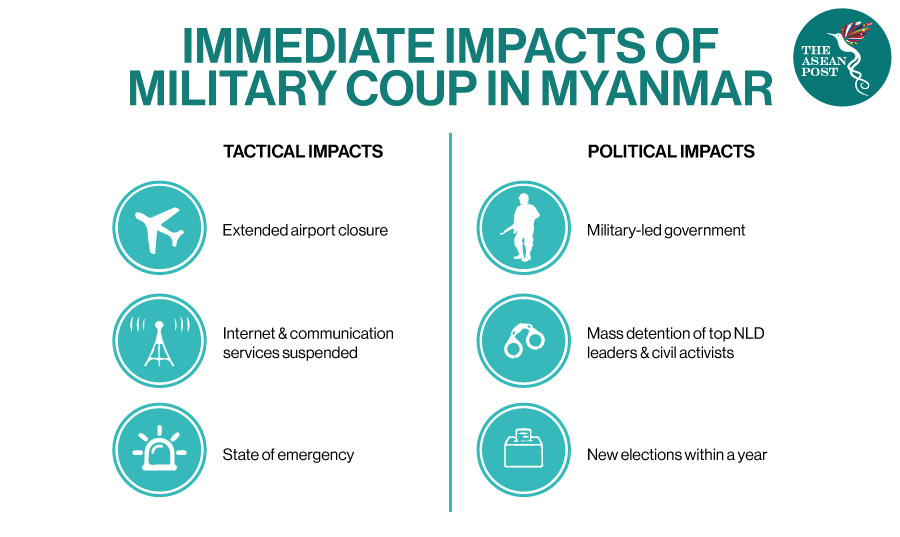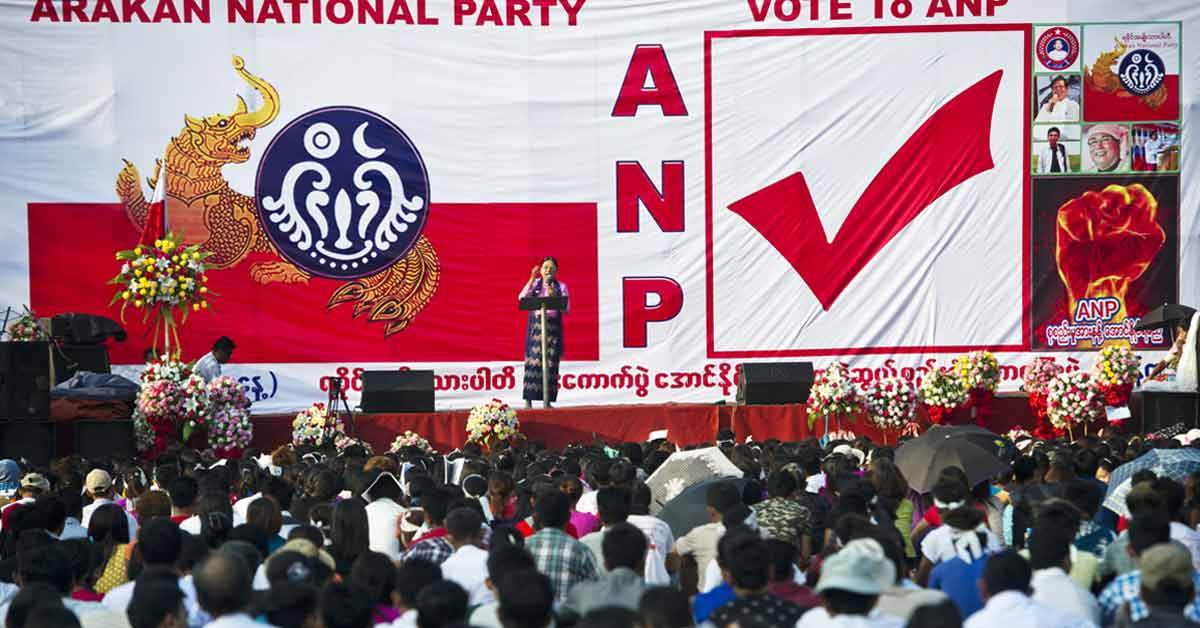After weeks of silence as Myanmar ’s military cracked down on civilians protesting against the 1 February coup, the Arakan Army (AA), a major player among the country’s more than two dozen ethnic armed groups, this week announced it was on the side of the people.
“The current actions by the Burmese army and police are very cruel and unacceptable,” AA spokesman Khine Thu Khahe said on Tuesday (23 March), adding that “the oppressed ethnic people as a whole will continue to fight for their freedom from oppression”.
The AA’s statement was significant, as it comes just weeks after Myanmar’s junta removed the militia from its list of terrorist groups as a means of establishing peace across the nation of 55 million.
The AA, in seeking greater autonomy for the western Rakhine State – which is home to the Rohingya Muslim ethnic minority group – has battled against army troops since 2018.
Myanmar’s ethnic minority groups – which make up about one-third of the population – have increasingly put aside their differences to condemn the coup, putting further pressure on military resources that are already stretched thin as they take on protesters.
The Restoration Council of Shan State / Shan State Army - South (RCSS) on Saturday became the latest such group to denounce the coup, with its chair General Yawd Serk saying Myanmar’s ethnic armed groups will not stand by and do nothing if the military junta’s forces continue to kill protesters.
Dozens of civil society organisations, especially those from the western Rakhine State, decried the coup and called for an end to the violence that has filled the streets of Myanmar’s largest cities since the democratically elected government of Aung San Suu Kyi was brought down.

Nehginpao Kipgen, Associate Professor and Executive Director of the Centre for Southeast Asian Studies at the Jindal School of International Affairs in India, said if Myanmar’s ethnic armed groups were united, they could be a “formidable force” against the military, known locally as the Tatmadaw, which has a force strength of around 350,000.
However, the groups have fallen prey to the military’s “divide and defeat” strategy, he said, referring to how some of them had thrown their lot in with the army due to grievances with Suu Kyi’s ruling National League for Democracy (NLD).
Cutting The NLD Down To Size
For instance, the Arakan National Party (ANP) saw the coup as an opportunity to cut the NLD government down to size, even though the military had brutally suppressed an ethnic Arakanese insurgency, displacing tens of thousands of Arakanese civilians, the ANP’s core constituency.
“The NLD is the biggest political competitor dominating the south of Rakhine state, which is more mixed ethnically,” said Philipp Annawitt, who served as an adviser to Myanmar’s parliaments and government from 2015 to 2021. “This was a chance [for the ANP] to get rid of them and establish control of all of Rakhine State for good.”
Annawitt said the junta had offered the ANP – Myanmar’s fourth-largest party, which dominates Rakhine state – seats on the central and state governments.
“[The ANP] is also negotiating the post of chief minister, which the NLD never granted them. I also assume the junta offered them more autonomy and greater control over local resources,” he said.
During last year’s elections, voting in several constituencies in Rakhine was cancelled due to security reasons. “Despite that, the ANP performed quite well in areas where elections were held, in a sign of strong rejection of the NLD,” said Kipgen of the Centre for Southeast Asian Studies.
Tom Fawthrop, a journalist who has covered Myanmar since 2002, said the ANP saw little difference between the NLD and the military because NLD leader Suu Kyi had once exhorted the armed forces to “crush the Arakan rebels”.
“They have never forgiven the NLD for ignoring the problems of Rakhine state,” Fawthrop said.
Shane Brady, co-founder of campaign group Democracy for Burma, said the military wanted to cooperate with the AA to free up resources in Rakhine so they could focus on crushing resistance to the coup elsewhere in the country.
As for the Mon Unity Party (MUP), which is headquartered in southern Mon State, its party leader has openly said that people belonging to ethnic minority groups need to protect themselves from harm by siding with the stronger side in the conflict. “They were surely also offered much the same as in Rakhine,” former adviser Annawitt said.
Kipgen added that some ethnic groups saw Suu Kyi “as another authoritarian leader under a majoritarian rule” and the NLD as ineffective for failing to make significant progress on their demands, which range from equal rights to the cessation of conflict with ethnic armed groups.
The NLD was only able to get two such groups to sign a nationwide ceasefire agreement, whereas the previous military-backed Union Solidarity Development Party (USDP) government was able to get eight of them to sign.
China’s Role
Annawitt said that China actually held “enormous sway” over the role that ethnic political and armed groups in Myanmar played in the current crisis.
Several of them receive support from Beijing, a legacy of China’s backing of the Communist Party of Burma in the 1960s and Beijing’s belief it has legitimate interests and a role to play in certain regions due to its geographical proximity to the Southeast Asian country.
These groups include the United Wa State Army (UWSA) operating in Wa State – an autonomous region within northern Shan State, which borders China.
The UWSA, the largest ethnic armed group in the country, is equipped with highly sophisticated weaponry provided by China, including man-portable air defence systems, or MANPADS, which are missiles that pose a real threat to the Myanmar military.
“If the UWSA enters the conflict on the side of the democratic resistance, things could go bad for the junta quickly,” Annawitt said.
Beijing was also said to be providing support to other ethnic armed groups, including the Kachin Independence Army (KIA), Brady noted, adding that it was too soon to determine whether China would become involved in the Myanmar crisis in such a way that it would be considered a proxy conflict.
This article was first featured in the South China Morning Post on 27 March, 2021.
Related Articles:
